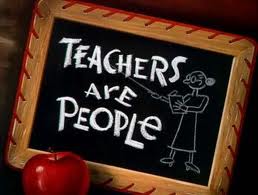Yesterday’s short note about a building without heat in Camden High has made the rounds, and I’m starting to hear from folks. I want to take this particular moment, when the weather makes obvious the problems with crumbling facilities, and use it to talk about an even bigger issue: treating teachers well.
This comment, from “Leigh” on yesterday’s post, gets to the heart of the matter:
As a retired teacher who taught in Camden for years and a suburbanite who took a job in Camden instead of offers from suburb districts because I thought I’d be more helpful in Camden, I can affirm that this happens. Not only in the winter and there’s no heat in the building, but in the early start of school and in May and June when the old buildings are over 98 degrees and no AC is provided. I used to put at thermometer in my room so I knew what the temp was. The other problem was that if we did have heat ion the winter, the boiler in the building was so old that the rooms were sometimes over 100 degrees … Hotter than than it was in the summer. As teachers, we wished the parents would come in and just sit a few minutes in the classroom and then make complaints. This has gone on for years in Camden.
This post drives home yesterday’s point, that old facilities are a tremendous impediment to learning. But it also points to a broader point about how we can support our teachers. This post suggests two fixes, that facility improvements support teachers, and that parents can do the same by being aware of conditions and holding the district and state accountable.
There’s also a nugget early in the comment that caught my eye. Leigh writes, as “a suburbanite who took a job in Camden instead of offers from suburb districts because I thought I’d be more helpful in Camden.” What a powerful reminder of the humanity of our teachers.
Our policies can better reflect this humanity. This year, the Camden School District started with a large shortage of teachers in traditional public school classrooms. Some had the vacancy numbers up as high as 90. The official position of the district was that such shortages were unforeseeable. That’s nonsense. The year before the district fired over 200 teachers, while simultaneously opening charter schools that hired new teachers. The same is expected for next year, and more charters have been approved (and, while not yet public, are already hiring to be opened in the Fall). Teachers, fired late in the year, end up stuck in a difficult position.
What this means, and what becomes obvious if you grab a drink with Camden teachers, is that they’d be out of their mind not to be thinking about their next opportunity. If you had the choice of finding a new job that wants you, or staying in a district that is actively transferring jobs from traditional schools to charter schools, what would you do? Of course, you take the new opportunity. Every teacher is aware of these dynamics.
Teacher vacancies like the ones that started this year are not unforeseeable. They are the result of policies that will result in more teachers being let go from the Camden School District. Teachers see that, and have to think about their own lives and careers.
There are other ways to do this. A new superintendent could have come in, seen structural deficits, and minimized firings by delaying the opening of new schools. And there are also ways to be teacher-friendly when it comes to changes in curriculum, evaluation and testing. But one of the best ways to be teacher-friendly is to treat teachers like professionals.
One of the reasons I try to feature as many teacher stories as possible in this space is because I find teachers to be incredible. They’re often fiercely individualistic, creative people who are attracted to the classroom because they can share their creativity and knowledge with the next generation. It’s obvious in Leigh’s story just how much she cares about her career.
I want to see these folks treated with the same respect I’m treated with as a professor. I’m given the freedom to develop my course materials, I can slow down or speed up my classes depending on how I think they’re learning, and my teaching evaluation is designed to support me, rather than a method to decide if I’m fired at the end of the year.
Those traits are part of what attracted me to teaching at the collegial level. I love the freedom of it. Just once, I’d love to see someone in an urban, “low-performing” district look at teachers like Leigh and say, “I’m inspired by your dedication. I want to support you and your creativity in every way possible,” then back up that statement by treating teachers like we treat college professors.
That, to me, is the future of education. We must recognize that teachers are people too, and they want freedom, support and stability so they can pass those things along to their students. Our colleges serve as a model for how to do that.

Stephen,
Thank you for raising your voice on behalf of the many who cannot speak up!
Doing so is both our obligation and privilege as University faculty and you do it particularly well!